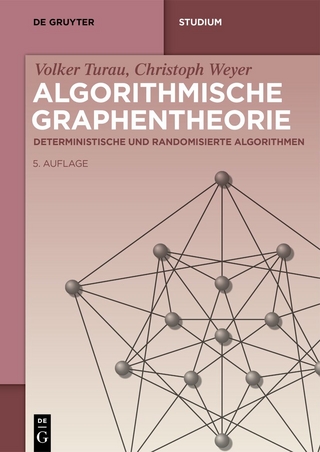
Quantum Software
Springer International Publishing (Verlag)
978-3-031-64135-0 (ISBN)
This open access book explains the state of the art in quantum software engineering and design, independent from a specific hardware. It deals with quantum software theoretical aspects and with classical software engineering concepts like agile development approaches, validation, measurement, and deployment applied in a quantum or hybrid environment, and is complemented by a number of various industry applications.
After an introductory chapter overviewing the contents of the subsequent chapters, the book is composed of three parts. It starts with a theoretical part on quantum software, as a bold declaration that quantum software theory is deep and valuable independent from the existence of specific quantum hardware. It is based upon the claim that quantum software is the more general theory subsuming classical and hybrid software system theories. The second, more extensive part deals with quantum software system and engineering design. Its quality follows from the comparison of the broad diversity of sometimes conflicting views. Moreover, the variety of approaches to design, enable the reader to make a well-pondered rational choice of preference. The book concludes with a third part, referring to multiple software applications and corresponding laboratory experiences, in order to understand their implications in practice and avoid repeating past mistakes.
This book is of interest to industry professionals and researchers in academia, which are either producing or applying quantum software systems in their work or are considering their potential utility in the future. Furthermore, it also could be beneficial for practitioners already experienced with classical software engineering who desire to understand the fundamentals or possible applications of quantum software.
Iaakov Exman is a professor in Computer Science, focusing on Software Theory, at the HIT Holon Institute of Technology, Israel. His research developed from a Linear Algebraic theory of Software Design, into a wider and deeper Quantum Software theory which encompasses quantum software systems, and subsumes classical and hybrid software as special cases.
Ricardo Pérez -Castillo is associate professor in the Faculty of Social Sciences and Information Technology at the University of Castilla-La Mancha (UCLM), Spain. His research interests include quantum software engineering, architecture-driven modernization, model-driven development, business-process archaeology, and enterprise architecture.
Mario Piattini is a Full Professor of Computer Science and leader of the Alarcos Research Group at the University of Castilla-La Mancha. He has experience of working in both academia and industry on information systems quality. His current interests include Quantum Software Engineering, specially hybrid (quantum/classical) systems and development technologies.
Michael Felderer is the Director of the Institute of Software Technology at German Aerospace Center (DLR), Germany, as well as a professor at the University of Innsbruck and Cologne. His research interests include software systems engineering for quantum computing, simulation technologies, and artificial intelligence as well as software quality assurance.
1. A Novel Perception of Quantum Software.- Part 1: Aspects of Quantum Software Theory.- 2. Simulating Quantum Software with Density Matrices.- 3. Superoperators for Quantum Software Engineering.- Part II: Quantum Software System Design.- 4. QSandbox: The Agile Quantum Software Sandbox.- 5. Verification and Validation of Quantum Software.- 6. Quantum Software Quality Metrics.- 7. Quantum Software Ecosystem Design.- 8. Development and Deployment of Quantum Services.- 9. Engineering Hybrid Software Systems.- Part III: Quantum Software Laboratory.- 10. Trapped-Ion Quantum Computing.- 11. Quantum Software Engineering & Programming Applied to Personalized Pharmacogenomics.- 12. Challenges for Quantum Software Engineering.- 13. Quantum Software Engineering Issues and Challenges.
| Erscheinungsdatum | 23.08.2024 |
|---|---|
| Zusatzinfo | XVII, 355 p. 115 illus., 99 illus. in color. |
| Verlagsort | Cham |
| Sprache | englisch |
| Maße | 155 x 235 mm |
| Themenwelt | Mathematik / Informatik ► Informatik ► Software Entwicklung |
| Mathematik / Informatik ► Informatik ► Theorie / Studium | |
| Naturwissenschaften ► Physik / Astronomie ► Quantenphysik | |
| Schlagworte | open access • Quantum Annealers • Quantum Artificial Intelligence • Quantum information processing • Quantum Software • Quantum Software Testing |
| ISBN-10 | 3-031-64135-3 / 3031641353 |
| ISBN-13 | 978-3-031-64135-0 / 9783031641350 |
| Zustand | Neuware |
| Informationen gemäß Produktsicherheitsverordnung (GPSR) | |
| Haben Sie eine Frage zum Produkt? |
aus dem Bereich


